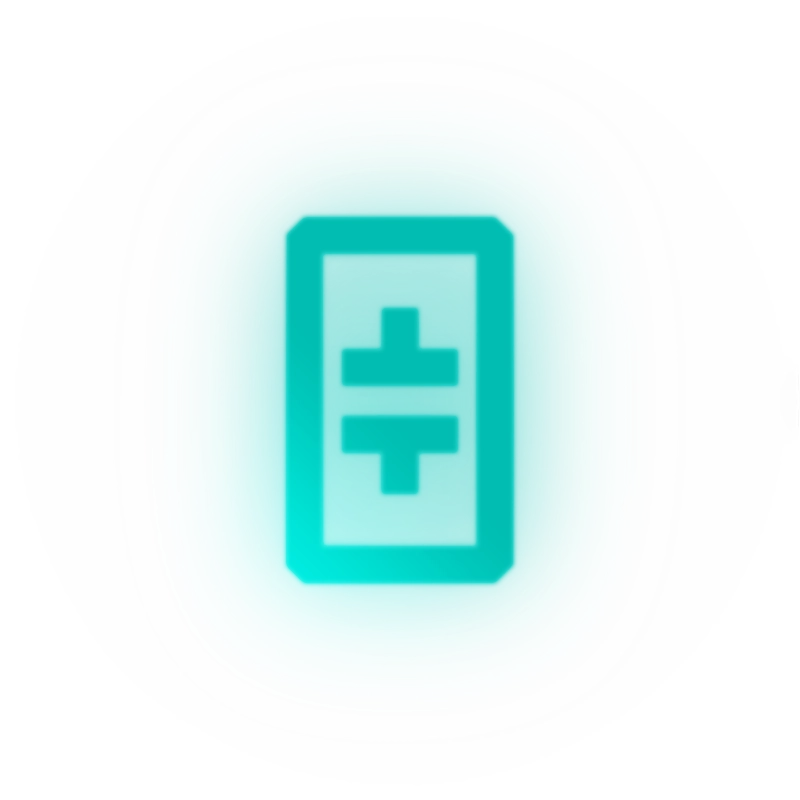Investing in crypto-assets carries risks of liquidity, volatility, and partial or total capital loss. Crypto-assets held are not covered by deposit and securities guarantee mechanisms.


Sign up for our newsletter
Partners
Coinhouse
Our accounts
Coinhouse
Coinhouse SAS with a capital of €210,000, RCS Paris 815 254 545, headquarters: 14 Avenue de l'Opéra 75001 Paris – support@coinhouse.com. Registered with the AMF for activities related to the purchase/sale of digital assets against legal tender, the exchange of digital assets for other digital assets, and the custody of digital assets for third parties under the registration number: E2020-001.
Coinhouse payment solutions
Company registered with the Paris RCS under the number 914 384 557, registered with the Prudential Control and Resolution Authority as a payment service agent under the number 727503 of the electronic money institution Treezor, headquartered at 33 Avenue de Wagram, 75017 Paris.
General conditions, disclaimers and legal documents.



The blockchain revolution has given rise to an impressive array of projects, each with unique use cases and benefits.
Among these innovations, Theta Network(Theta Network live course) stands out as a promising solution in the world of decentralized video streaming.
In this article, we’ll explore what makes Theta such an innovative project, its pros and cons, and what the future might hold.
Theta is a blockchain specifically designed to optimize the delivery of streaming content, reducing costs while increasing quality and speed.
It uses a decentralized approach to improve video content distribution.
Unlike traditional platforms such as YouTube or Twitch, Theta enables users to share their unused bandwidth to help distribute content.
Theta Network (THETA) is a blockchain platform specifically designed for decentralized video streaming.
Its operation is based on an innovative technology that aims not only to improve the quality of streaming broadcasts, but also to reduce the costs associated with them.
The essence of Theta is to use users’ unused bandwidth to improve and optimize video streaming.
By sharing their excess bandwidth, users contribute to the fluidity and quality of streaming on the network.
In return for this contribution, they are rewarded with THETA tokens.
See the THETA course live.
This incentive scheme encourages active user participation and guarantees efficient content distribution.
Theta integrates advanced features such as support forsmart contracts and the ability to create decentralized applications (dApps) on its platform, offering a multitude of uses and applications for content creators and developers.
Theta has two native tokens: the Theta Token (THETA) and Theta Fuel (TFUEL).
The former is used for network governance and security, while the latter serves as fuel for transactions and operations on the platform.
The TFUEL has no use as an investment vehicle and can be considered as a utility token.
Theta operates via an ecosystem of users, all of whom benefit from its use.
First and foremost, video viewers.
They simply consume the content provided, but not only.
Viewers can use TFUEL to tip the creators of content they enjoy.
This serves as a direct monetization mechanism for creators and reinforces the interaction between creators and their audience.
TFUEL can also be used to participate in interactive games, polls or live events organized by content creators.
For example, interactive voting during a live stream where each vote could cost a small amount of TFUEL.
Viewers interact with TFUEL in a variety of ways that enrich Theta’s streaming ecosystem, while enabling better monetization for content creators and a more interactive experience for the audience.
Then there are the content creators.
These are typically individuals or groups who stream live or pre-recorded video content, whether for gaming, tutorials, vlogs and so on.
Some content creators use Theta to broadcast live performances, Q&A sessions and other musical or artistic content.
The media can use Theta to broadcast live events, interviews, documentaries and other news content.
Theta can also be used to broadcast educational content such as webinars, online courses or workshops.
Finally, some companies use Theta for professional webinars, product launches or interactive marketing campaigns.
With Theta, creators have a variety of monetization options, including TFUEL tips, access to premium content or even sponsorship and advertising agreements.
In addition to traditional monetization, creators can earn TFUEL based on the quality and popularity of their content.
Thanks to Theta’s blockchain technology, creators can benefit from more efficient and less costly content distribution.
Blockchain offers greater transparency in terms of content ownership, transactions and payments.
Creators may also need to spend TFUEL: Companies or organizations that need a lot of bandwidth for content distribution can buy TFUEL on the open market and redistribute it to bandwidth providers in exchange for their services.
If a creator wishes to promote its content more aggressively to reach a wider audience, it could spend TFUEL to buy advertising space on the platform or to participate in targeted marketing campaigns. In some cases, creators might use TFUEL to reward their audience, or to organize games and challenges.
The last important type of user to consider is the bandwidth provider.
Bandwidth providers play an essential role in the success of the Theta ecosystem.
By providing their unused bandwidth for content streaming, they help to create a decentralized content delivery network, reduce delivery costs and improve streaming quality.
They can be individual users, companies and data centers, or Internet service providers.
Viewers connect directly to their infrastructure to receive the videos they request.
Theta is an innovative blockchain specifically designed for decentralized, low-latency live video streaming.
The technology is based on a unique architecture comprising three key node types: Enterprise Validator Nodes, Guardian Nodes and Edge Nodes.
Enterprise Validator Nodes are at the heart of Theta’s consensus mechanism.
These nodes are managed by Theta’s strategic and institutional partners, such as Google, Samsung and Binance.
They are responsible for validating transactions and generating new blocks on the blockchain.
Because of their central role, these nodes require a robust infrastructure and are subject to strict performance and security requirements.
Guardian Nodes support Enterprise Validator Nodes.
They act as a second layer of security, finalizing the chain’s blocks after initial validation.
Their role is crucial in reinforcing network decentralization and protecting the blockchain against potential attacks.
Guardian Nodes enable the Theta community to play an active role in securing the network, while being rewarded for their efforts.
Finally, Edge Nodes play a fundamental role in video broadcasting.
Unlike the other two node types, Edge Nodes concentrate on caching, processing and retransmitting video streams.
They also enable ordinary users to make their unused resources, such as bandwidth, available to support the network.
In return, these users are rewarded with THETA tokens for their contribution.
By combining these three types of nodes, Theta succeeds in creating a decentralized, resilient and efficient ecosystem, capable of meeting the challenges of live video broadcasting while offering economic benefits to its participants.
In return for their contribution, content providers are rewarded with Theta Fuel tokens(TFUEL courses) that can be used or traded on various platforms.
Depending on Theta’s business model, some bandwidth providers may earn special statuses or rankings based on their contribution, which could give them access to additional incentives.
Part of the TFUEL is generated as a protocol reward to encourage participants to maintain and secure the network.
This TFUEL can be distributed to relay nodes and bandwidth providers for their contribution to the ecosystem.
The Theta protocol can have a fixed or variable annual inflation rate that generates new TFUEL.
These tokens are then used to reward active network participants, including bandwidth providers.
Theta is based on a multi-level architecture that includes a network of validation nodes, relay nodes and a PoS(Proof of Stake) consensus mechanism.
This structure promotes a more efficient distribution of resources and enables high scalability.
In the Theta blockchain network, relay nodes play a crucial role in the distribution of streaming content.
Unlike validation nodes, which are responsible for creating and validating new blocks in the blockchain, relay nodes are dedicated to managing video streaming traffic.
Relay nodes retrieve video fragments from content servers or other relay nodes and redirect them to end users, helping to deliver streaming content efficiently.
By relaying data from sources close to end users, relay nodes help reduce latency and improve streaming quality.
Relay node operators are typically rewarded with Theta Fuel Tokens (TFUEL) in exchange for their contribution to bandwidth and content distribution.
Some relay nodes may receive a special status or ranking based on their performance and reliability, which could pave the way for additional incentives.
By enabling anyone to become a relay node, Theta contributes to the decentralization of video streaming.
The platform is designed to make optimal use of unused bandwidth, reducing costs for content providers.
Theta is built to be compatible with other blockchains, increasing its flexibility and potential for innovation.
With its ambitious roadmap and growing ecosystem, Theta has the potential to radically transform the world of video streaming.
However, the challenges of scalability, adoption and regulation are obstacles that need to be overcome.
Although Theta has been designed to be scalable, it has yet to prove itself on a large scale.
The platform has to fight for adoption against established giants like YouTube.
For the time being, Theta has not yet attracted enough users and content providers to be considered a success.
Theta Network, with its revolutionary vision of decentralizing video delivery, is positioned to play a major role in the future of streaming.
The network’s native crypto-asset, the Theta Token (THETA), is at the heart of this transformation, serving to validate transactions and incentivize users to share bandwidth resources.
The growing adoption of 5G technology, which promises to dramatically improve the quality of streaming, coupled with growing corporate interest in Theta-powered enterprise conferencing, suggests a bright future for the project.
What’s more, with the crypto market gaining in maturity and acceptance, Theta is well placed to capitalize on these trends.
Forecasts even suggest that the price of THETA could reach unprecedented heights in the coming years.
However, as with any forecast, it’s crucial to bear in mind the volatile nature of the crypto-asset market and the many external factors that can influence price trajectories.
Theta Network continues to evolve and develop, with several ambitious projects underway and in the pipeline.
One of Theta’s main objectives is to expand its ecosystem by integrating more strategic partners, including giants from the streaming and media industries.
In addition, Theta is actively working on improving its streaming technology to deliver an even smoother, high-quality user experience.
Another major project for Theta is the expansion of its NFT (non-fungible token) market.
With the rise of NFTs in the crypto world, Theta plans to create a dedicated platform where creators can easily issue and exchange NFTs.
Theta is also interested in expanding its smart contract capabilities to attract more developers and businesses.
The aim is to make Theta a versatile platform, not only for video streaming but also for various decentralized applications.
Finally, decentralized governance is at the heart of Theta’s concerns.
They plan to implement mechanisms that will enable the community to have a more significant voice in the network’s future direction and decisions.
All in all, the future looks bright for Theta Network, with a host of innovative projects designed to strengthen its position as a leader in decentralized video broadcasting and beyond.
Theta is a crypto to watch, as it’s an innovative project that aims to solve concrete problems in the world of video streaming.
Its decentralized approach and technological innovations make it a serious candidate to revolutionize this industry.
If services like Youtube or Twitch become more difficult or restrictive to use in the future, users may well decide to migrate to more welcoming, decentralized platforms.
Theta is ready to meet this challenge.
The value of the THETA token could then reflect market usage of the network as it develops, and become one of the most highly valued tokens on the market.
Share the article


Download app